What does it mean if you have excess earwax?
Earwax, also known as cerumen, is a naturally occurring substance in the ear canal. It plays a crucial role in protecting your ears from dirt, dust, and bacteria. But what happens when your body produces too much earwax? And how can you determine if it’s affecting your health? In this blog, we delve into the causes, effects, and solutions for excess earwax, supported by scientific data.
What is the function of earwax?
Earwax is not just a waste product. It is produced by glands in the ear canal and consists of a mix of fats, dead skin cells, and secretions. Its primary functions include:
- Protection against bacteria and fungi.
- Preventing the ear canal from drying out.
- Trapping dirt and dust.
Studies show that a healthy amount of earwax is essential for maintaining optimal ear health. According to an article in The Journal of Otolaryngology (2021), earwax reduces the risk of infections through its antibacterial properties.
What causes excess earwax?
There are several reasons why your body might produce too much earwax:
- Genetic predisposition: Some people naturally produce more earwax.
- Age: Earwax becomes drier and more likely to accumulate as people age.
- Frequent use of earbuds or hearing aids: These can disrupt the natural migration of earwax out of the ear canal.
- Overcleaning: Using cotton swabs can push earwax deeper into the ear canal, leading to buildup.
What are the symptoms of excess earwax?
Excess earwax can cause various symptoms, such as:
- Hearing loss: A study published in Hearing Research (2019) found that a blockage caused by earwax can reduce sound transmission by 20 to 30 decibels.
- Ear pain: Excess earwax can put pressure on the eardrum.
- Tinnitus (ringing in the ears): Buildup can lead to constant ringing or buzzing sounds.
- Dizziness: In severe cases, a blockage can affect the balance system in the inner ear.
How is excess earwax diagnosed?
A doctor or specialist can quickly identify earwax buildup using an otoscope. Research published in The American Journal of Audiology (2020) estimates that up to 6% of the global population experiences clinically significant earwax buildup, particularly older adults.
How can you treat excess earwax?
There are several ways to remove excess earwax:
- Professional ear cleaning: ENT specialists use techniques such as suction or micro-instrumentation to safely remove excess earwax.
- Use of earwax softeners: Products containing carbamide peroxide or glycerin can soften earwax, making it easier to remove.
- Electric ear irrigators: Modern devices, such as the HAIDU Ear Cleaner, offer a safe and efficient way to remove excess earwax at home.
- Avoid cotton swabs: These can do more harm than good by pushing earwax deeper into the canal.
When should you see a doctor?
If you experience persistent hearing loss, severe pain, or discharge from the ear, it is important to seek medical advice. Prolonged blockages can lead to infections and permanent hearing damage.
Excess earwax is usually not a cause for concern, but it can cause discomfort and health issues if left untreated. By understanding the causes and effects, you can take preventive measures and seek professional help when needed. Using safe cleaning techniques, such as the HAIDU Ear Cleaner, can be a valuable addition to your personal care routine. Take good care of your ears; they are essential for daily communication and quality of life.




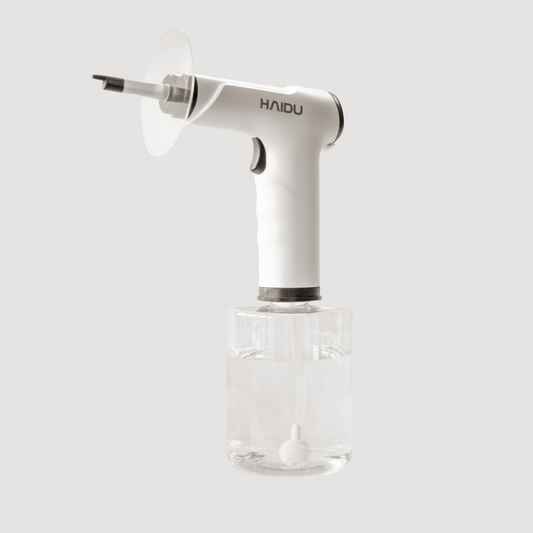

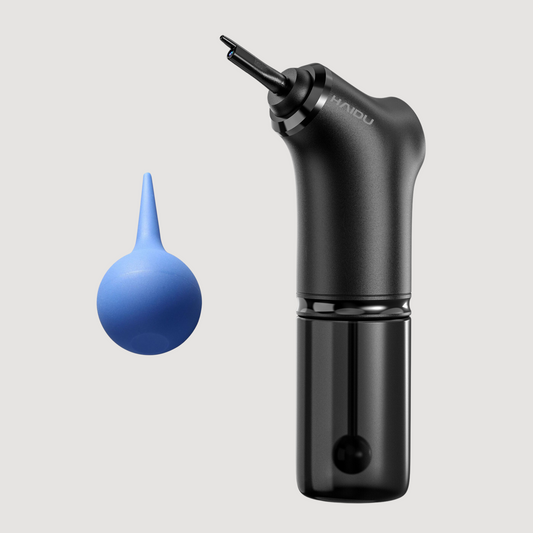



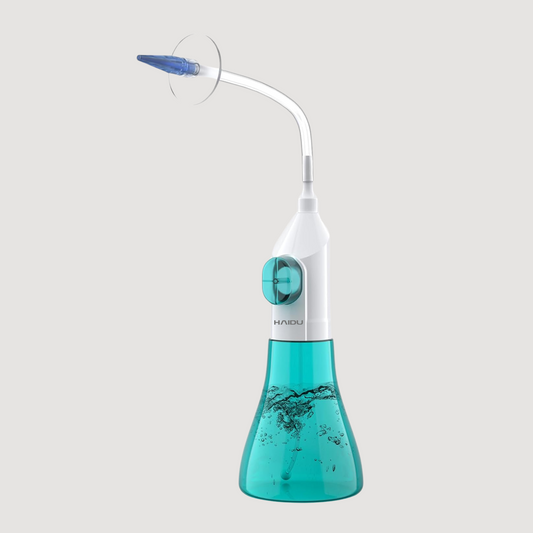


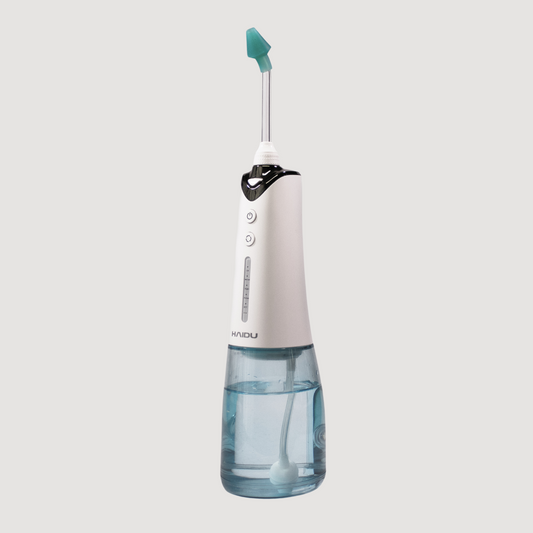
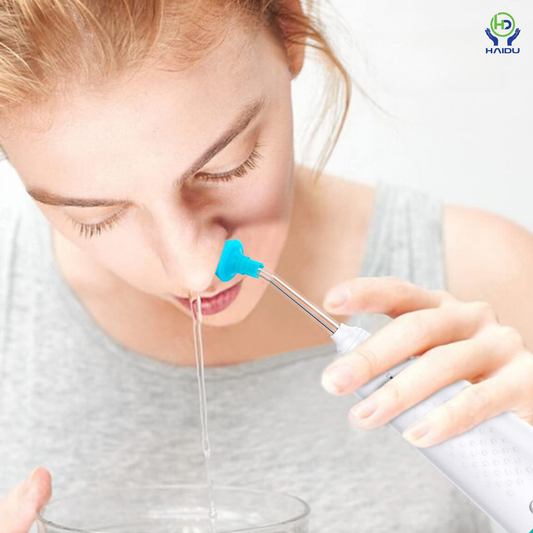
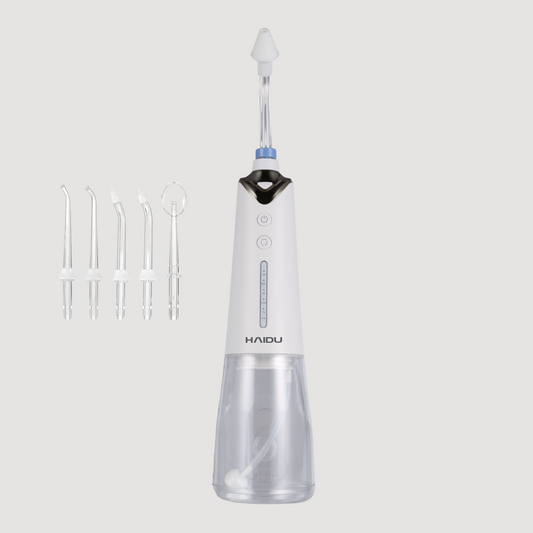
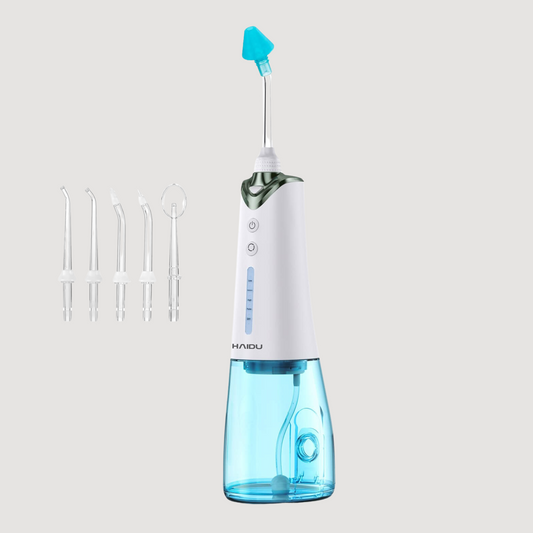
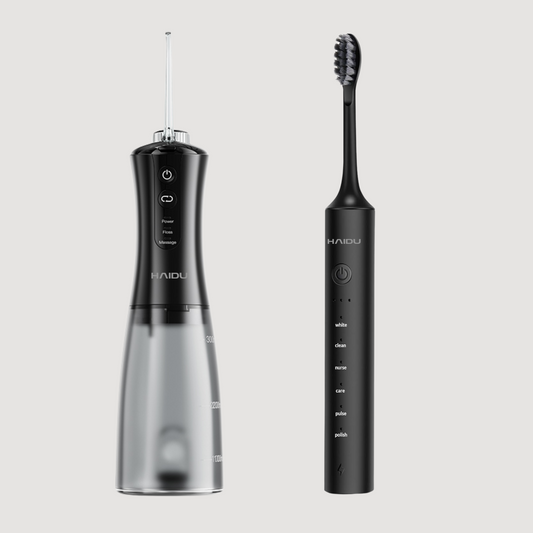
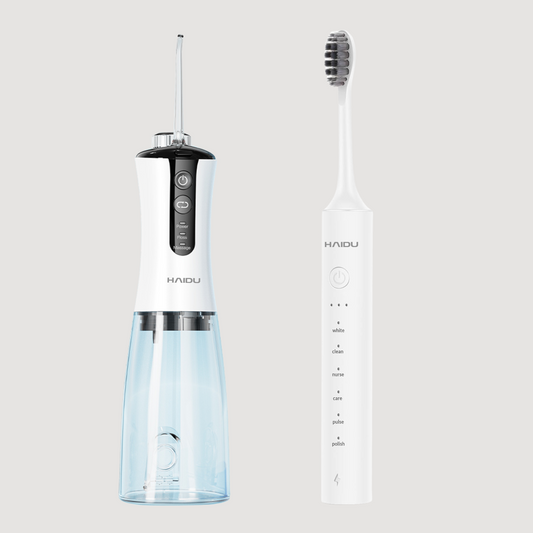
Leave a comment
All blog comments are checked prior to publishing